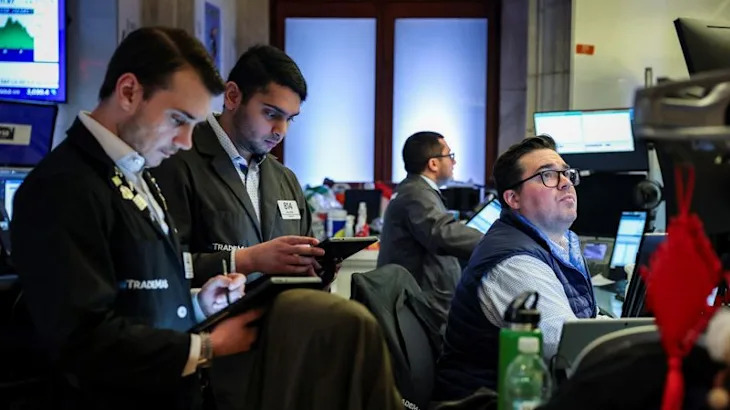Best Buy ( BBY ) posted better-than expected results after a series of disappointing quarters.
On Thursday, the company reported revenue of $9.29 billion, compared to estimates of $9.24 billion. Adjusted earnings per share jumped 10% year over year to $1.34, more than the $1.16 anticipated.
CEO Corie Barry said in the release that the numbers are a result of its focus on "sharpening" the customer experiences and market positioning, while "expanding our non-GAAP operating income rate in the current environment."
She added that customers are "seeking value and sales events," but also "willing to spend on high price point products when they need to or when there is new compelling technology."
Shares of Best Buy jumped 8% in pre-market trading.
This report comes after Best Buy unveiled a new tagline, Imagine That, during the quarter, updated its app, and added more experiential spaces in stores.
Same-store sales declined 2.3%, but less than the 3.17% Wall Street expected, as segments like appliances and entertainment continue to struggle.
"What concerns us are the share losses of Best Buy in major appliances and TVs," Evercore ISI analyst Greg Melich wrote in a client note prior to result.
"We believe charging for installation of products is hurting the company’s share in products that account for approximately 30% of sales," Melich added. Its services business was up 8.5% in sales.
Best Buy has been investing in the segment and unveiled a live-tracking feature on its app for deliveries and installations in Q2.
For fiscal year 2025, the company expects same-store sales to decline 3% to 1.5%, compared to a previously expected decline of 3.5% to flat.
Joe Feldman of Telsey Advisory Group expected to see ongoing pressure in Q2 results. The slowdown in demand after the pandemic and the "challenging macroeconomic trends weighing on consumers" will continue to be headwinds, he wrote in a client note prior to the report.
Feldman expected to see the electronics retailer show signs of stabilization and return to growth in the second half of 2024, as "newness and the replacement cycle kicks in, especially for products purchased in 2019-2020."
Artificial intelligence products could boost sales as well.
"Innovation, particularly around artificial intelligence (AI) — such as with the new Microsoft Copilot laptop — is starting to gain traction, and the trend is expected to strengthen as more new technology products hit the market around the back-to-school timeframe," he wrote.
Per a survey from Morgan Stanley analyst Alex Straton, among consumers who intend to shop for back-to-school, spending on electronics saw a 4% increase year over year, which is up from roughly flat in last year's survey. Straton called this a "potential positive read through" for Best Buy.
5 smart ways to save money on back-to-school supplies
The earnings breakdown
Here's what Best Buy reported in Q2, compared to what Wall Street expected, per Bloomberg consensus data:
Adjusted earnings per share: $1.34 versus $1.16
Net Sales: $9.29 billion versus 9.24 billion
Same-store sales growth overall: -2.30% versus -3.17%
Total US same-store sales growth: -2.30% versus -3.33%
Sales growth for:
International: -1.80% versus -2.22%
Following its Q2 earnings results, the company updated its full year outlook. It now expects revenue to come in between $41.3 billion to $41.9 billion, compared to the previously expected range of $41.3 billion and $42.6 billion.
Best Buy CFO Matt Bilunas said in the release, "we expect our industry to continue to show increasing stabilization."
It also anticipates "better-than expected profitability." It expects adjusted earnings per share to come in between $6.10 to $6.35, higher than the prior guidance of $5.75 to $6.20.
—
BrookeDiPalma





